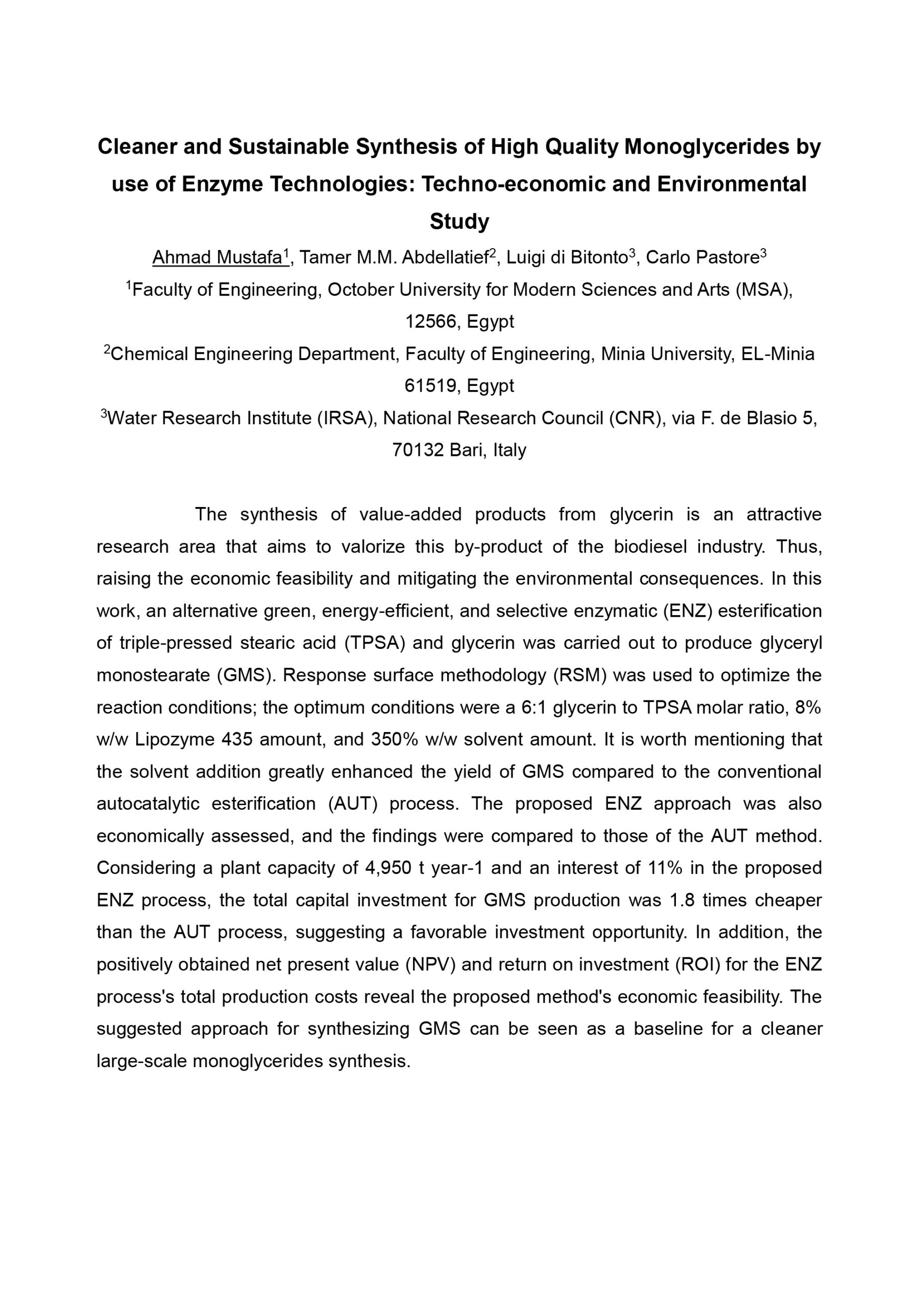The synthesis of value-added products from glycerin is an attractive research area that aims to valorize this by-product of the biodiesel industry. Thus, raising the economic feasibility and mitigating the environmental consequences. In this work, an alternative green, energy-efficient, and selective enzymatic (ENZ) esterification of triple-pressed stearic acid (TPSA) and glycerin was carried out to produce glyceryl monostearate (GMS). Response surface methodology (RSM) was used to optimize the reaction conditions; the optimum conditions were a 6:1 glycerin to TPSA molar ratio, 8% w/w Lipozyme 435 amount, and 350% w/w solvent amount. It is worth mentioning that the solvent addition greatly enhanced the yield of GMS compared to the conventional autocatalytic esterification (AUT) process. The proposed ENZ approach was also economically assessed, and the findings were compared to those of the AUT method. Considering a plant capacity of 4,950 t year-1 and an interest of 11% in the proposed ENZ process, the total capital investment for GMS production was 1.8 times cheaper than the AUT process, suggesting a favorable investment opportunity. In addition, the positively obtained net present value (NPV) and return on investment (ROI) for the ENZ process’s total production costs reveal the proposed method’s economic feasibility. The suggested approach for synthesizing GMS can be seen as a baseline for a cleaner large-scale monoglycerides synthesis.
